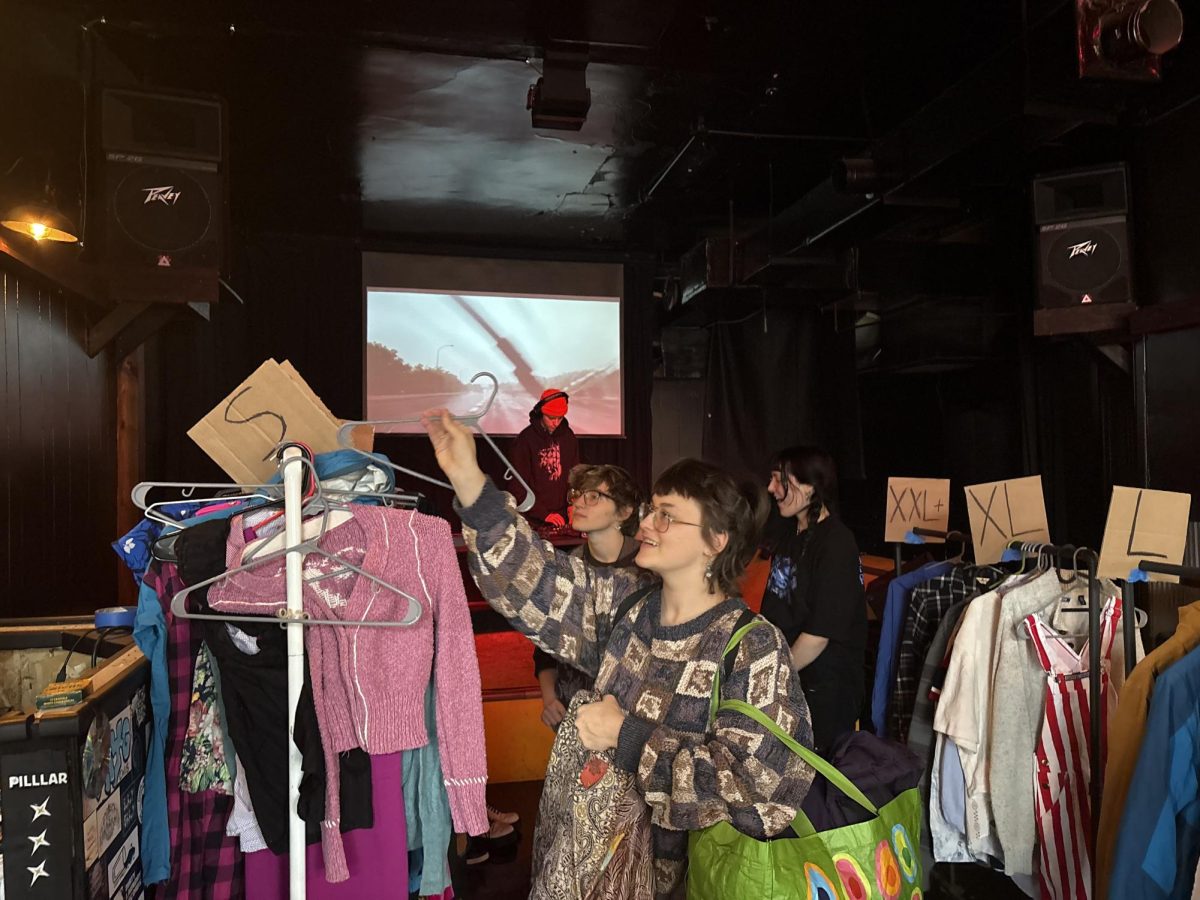Bodies dressed in black tumble in slow-motion across the dimly-lit black stage, one scribbles on the wall and another does backwards summersaults while characters spout elliptical lines like “Cement in bloom walks through the slums.”
And is that wine you smell?
Yes, it is. Draped around the dungeon stage of the University’s Xperimental Theatre are white sheets soaked red with wine, wafting the overpowering stench of week-old alcohol.
“It represents life in decay,” said Malin Palani, a graduate student directing the theater’s production of “Die Hamletmaschine,” the dense 1977 play written by German playwright Heiner Müeller.
It’s a complicated work. Though its five acts are comprised of about six pages of script, the Xperimental Theatre’s production will last about two hours, and Palani said Müeller once directed a performance of the play that lasted six hours.
The play is based on Shakespeare’s “Hamlet,” dwelling mostly on the death of Ophelia and Hamlet’s betrayal by his mother. But while Shakespeare’s Hamlet is revisited by his father from the grave, Müeller’s Hamlet is haunted by Ophelia, the woman in decay.
“Hamletmaschine” also draws on another Shakespearean play “As You Like It,” expanding on the theme, “all the world is a stage.” And it uses the whole of the Western cannon to prove this, dropping historical references left and right and quotations by poets like T.S. Eliot.
“You can really read it over and over again, and catch something new each time,” Palani said. “It has a web of interconnections in it.”
Theater junior Blake Snortland said it’s a play that may be hard to understand at first viewing, a challenge that extends to the acting.
“I really had no idea what I was getting into,” he said of his audition for the play. “This show has messed with my brain in ways that haven’t been done before.”
The challenge for the actors lies in the fact that there are no set roles. The script is written in a kind of monologue and the six actors take turns delivering the lines as they writhe around the stage. At any given part of the play, any actor could be Hamlet or Ophelia.
The whole thing is very heavily choreographed, but the movements emerged from a series of improvisational practice sessions the cast has been engaging in since starting rehearsals at the end of September.
The cast practiced using Anne Bogart’s Viewpoints, a kinesthetic method of theater acting adapted by Bogart from dance choreography that emphasizes time, space and sound – rather than story and emotion – in the actor’s on-stage motions.
Lee Chriske, a theater and history major acting in the play, said acting with the Bogart method is like nothing he has ever done before. “It’s a very connected experience,” he said. “We had to learn to be able to feel the impulse of movement or action and respond to it.”
If the acting techniques sound a bit odd, it’s only because the strangeness of the play demands it. Because there are no set roles and the language is so oblique, the play relies as much on its stark imagery as anything else to communicate its message.
But it’s not only strange, it’s also broad, and Palani said that is what makes it an important work. At a time when even university life has morphed into a world of business-as-usual, with bureaucratic administrators pushing students through the standardized assembly line like products, while doing everything possible to move up the list in some loosely perceived national ranking, “Hamletmaschine” takes shots at the whole mechanical mindset that spawns such an environment.
“Die Hamletmaschine”
WHEN: Nov. 16 through 18 at 8 p.m., Nov. 19 at 4 p.m.
WHERE: Xperimental Theatre, in the basement of the Rarig Center, West Bank
TICKETS: Free
“The play is a critique of patriarchal ways of doing things, it’s a critique of history and of capitalism and the way it functions,” she said.
All this from an extended dark meditation, one where nobody really has a role?
“It’s the whole societal situation we find ourselves in,” she said. “It dehumanizes us.”







